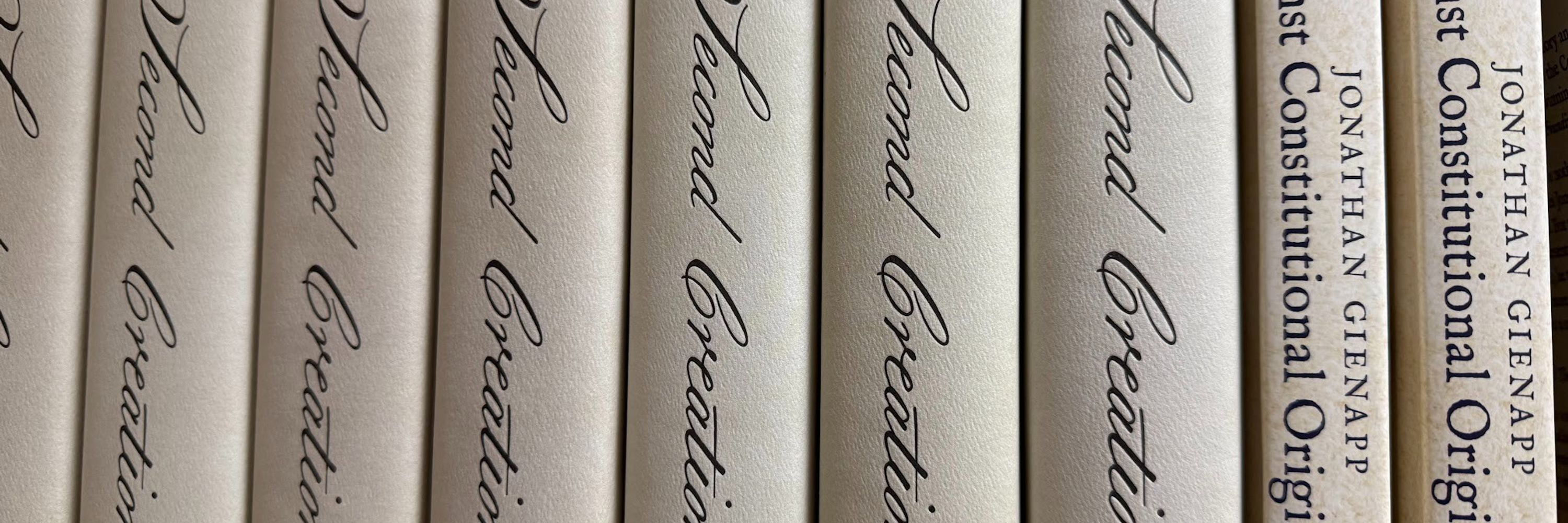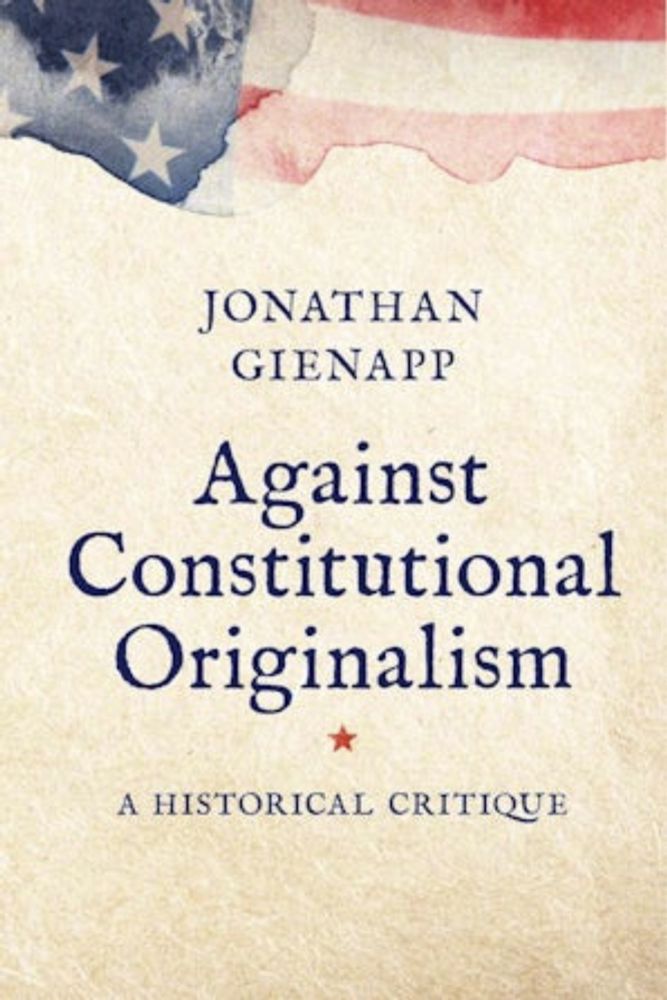
Jonathan Gienapp
@jgienapp.bsky.social
Professor of History and Law, Stanford University. Books on early Constitution: http://tinyurl.com/yynk95aa; and originalism and history: http://tinyurl.com/3dd5hnt6
jonathangienapp.com
jonathangienapp.com
Reposted by Jonathan Gienapp
When it addresses what history is most useful (founding-era) it raises an interesting q about Bruen's emphasis on *text*. Tho the court doesn't cite @jgienapp.bsky.social or Jud Campbell's work about the limited relevance of textual specification, that seems to be in the background of this worry.

August 27, 2025 at 4:53 PM
When it addresses what history is most useful (founding-era) it raises an interesting q about Bruen's emphasis on *text*. Tho the court doesn't cite @jgienapp.bsky.social or Jud Campbell's work about the limited relevance of textual specification, that seems to be in the background of this worry.
Thanks! Much appreciated.
August 23, 2025 at 3:40 PM
Thanks! Much appreciated.
Reposted by Jonathan Gienapp
7) In his new book @jgienapp.bsky.social argues that one cannot understand the Constitution without placing it into the contexts in which it was written-- none more so than the Founders' commitment to republicanism.

Against Constitutional Originalism
A detailed and compelling examination of how the legal theory of originalism ignores and distorts the very constitutional history from which it derives inter...
yalebooks.yale.edu
August 22, 2025 at 3:36 PM
7) In his new book @jgienapp.bsky.social argues that one cannot understand the Constitution without placing it into the contexts in which it was written-- none more so than the Founders' commitment to republicanism.
Reposted by Jonathan Gienapp
directly in the face of recent historical scholarship by Jud Campbell, @jgienapp.bsky.social, and others, that demonstrates how rights at the founding were not conceived of as these textual objects only secured once codified in a constitution.
August 20, 2025 at 2:02 PM
directly in the face of recent historical scholarship by Jud Campbell, @jgienapp.bsky.social, and others, that demonstrates how rights at the founding were not conceived of as these textual objects only secured once codified in a constitution.

